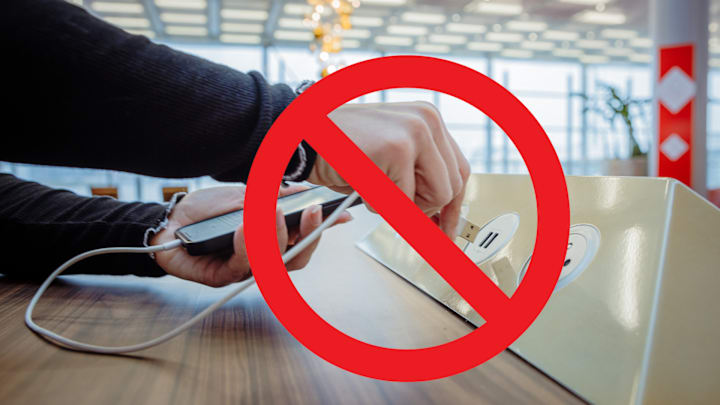An empty USB port at a charging station in an airport, a mall, or some other public place might seem heaven-sent to someone with a rapidly dwindling phone battery and a USB cable that’s missing its outlet cube.
But those public ports can leave you with something worse than a dead phone. The FBI’s Denver base recently tweeted a recommendation that people “avoid using free charging stations” because hackers “have figured out ways to use public USB ports to introduce malware and monitoring software onto devices.” A spokesperson from the FBI Denver office told The Hill that the message was just intended as a public service announcement, rather than a response to any specific incident.
The FBI isn’t the only federal agency that has issued a warning about so-called “juice jacking.” There’s a rundown of what it is and how to avoid it on the FCC’s website, too. “Malware installed through a corrupted USB port can lock a device or export personal data and passwords directly to the perpetrator,” the site explains. “Criminals can then use that information to access online accounts or sell it to other bad actors.” Considering how much personal information we store on our phones these days, this type of invisible theft could really cause some damage.
So how can you make sure it doesn’t happen to you? In simplest terms, just don’t use a public USB charging station. Make sure your USB cable has its wall adapter so you can plug your charger right into a power outlet, or bring a portable charger with you whenever you anticipate needing to charge your phone in public. You can also get a “charging-only” USB cable, which doesn’t contain the wires needed for data transfer. And never plug your phone into a USB cable that someone else left at a charging station—it could be harmless, but why risk it?
[h/t The Hill]
